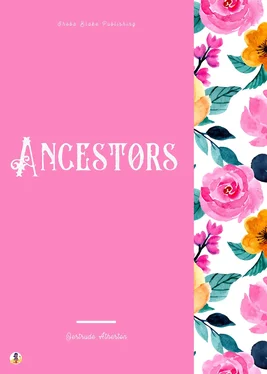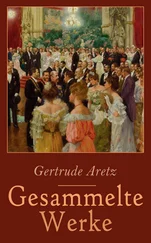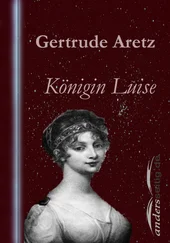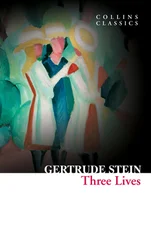Gertrude Atherton - Ancestors
Здесь есть возможность читать онлайн «Gertrude Atherton - Ancestors» — ознакомительный отрывок электронной книги совершенно бесплатно, а после прочтения отрывка купить полную версию. В некоторых случаях можно слушать аудио, скачать через торрент в формате fb2 и присутствует краткое содержание. Жанр: unrecognised, на английском языке. Описание произведения, (предисловие) а так же отзывы посетителей доступны на портале библиотеки ЛибКат.
- Название:Ancestors
- Автор:
- Жанр:
- Год:неизвестен
- ISBN:нет данных
- Рейтинг книги:3 / 5. Голосов: 1
-
Избранное:Добавить в избранное
- Отзывы:
-
Ваша оценка:
- 60
- 1
- 2
- 3
- 4
- 5
Ancestors: краткое содержание, описание и аннотация
Предлагаем к чтению аннотацию, описание, краткое содержание или предисловие (зависит от того, что написал сам автор книги «Ancestors»). Если вы не нашли необходимую информацию о книге — напишите в комментариях, мы постараемся отыскать её.
Ancestors — читать онлайн ознакомительный отрывок
Ниже представлен текст книги, разбитый по страницам. Система сохранения места последней прочитанной страницы, позволяет с удобством читать онлайн бесплатно книгу «Ancestors», без необходимости каждый раз заново искать на чём Вы остановились. Поставьте закладку, и сможете в любой момент перейти на страницу, на которой закончили чтение.
Интервал:
Закладка:
“Well, I have no desire to be taken for anything but an American,” she said, defiantly. “A Californian, that is. After all, we are quite different. But we do have an appalling variety of accents in the United States. I have lived abroad long enough to discover that. When I am an old maid I am going to mount the platform and preach the training of the voice in childhood. I have taken a violent dislike to more than one clever American man merely because he trailed his voice through his nose. I don’t mind our vices being criticised as much as our crudities.”
“I never before heard an American girl make a remark that indicated the least interest in her country—even when—pardon me—they brag. They generally give the impression that they don’t even know who happens to be the President of the moment. Somehow, you look as if you might.”
“I was brought up by a man, and my uncle was a great politician in a small way. That is to say he was identified with country politics only, but he and my father were everlastingly discussing the national issues. Of course you have only met girls from the great cities, where the men are too busy making money to take any interest in public affairs. The women rarely hear them mentioned, practically forget there are such affairs—except on the Fourth of July, which they resent as a personal grievance. I have met scores of them in Europe. To know anything of politics they regard as the height of bad form.”
“Sometimes I wish that our women would let them alone for a while. That is my sister over there,” indicating the lady with the Burne-Jones face. “She has worn herself to a shadow working for her husband, who is in the House, and she is heart and soul in politics—which she regards as a sort of divine mission. She is on several committees, is far more useful to her husband than his secretary, for she has the gift of style—and no one would accuse Rex of that—and during an election she never rests. Besides which, of course she has her little family, the usual number of establishments to look after, and great social pressure. I always maintain that our women are of immense service to us, but many of them are physically unfit. I expect to see my sister go to pieces any day, and as she is little short of an angel it worries me.”
“She does look angelic,” said Isabel, sympathetically. “Is that what is the matter with the rest of them?—the thin ones, I mean?”
“Generally speaking. The thinnest is my cousin. I went in for a cup of tea a week or two before the end of last session. There were several of us about the tea-table when a footman entered and muttered something to her, and with a vague word of apology she left the room and did not return for half an hour. I thought the baby must be dying, and was about to ring, when she reappeared and remarked that she had been sitting at the telephone listening to a paper her husband had just finished on one of the questions before the House. Some of them stand it better.” He indicated a fair beautiful creature with a determined profile and deep womanly figure. “There is Mrs. Sefton, for instance. She presides at committee meetings—she is great on colonial politics—for three or four hours at a time, and always sails out as fresh as a rose; but she has buried her husband and entertains when and whom she chooses. Lady Cecilia opposite understands politics as well as any woman in England, but does not go in for them—Spence isn’t in the House; that may account for it!”
“Your fashionable women do not in the least resemble ours,” said Isabel, meditatively. “They are far more like the women of our small towns.”
“What!”
“It sounds paradoxical, but it is more than half true. Say two-thirds; the other third is all in favor of your women, for obvious reasons. But those I speak of, the best women of every small town, are constantly active in civic affairs. Most of the sanitary improvements and the educational, all schemes for parks and better streets, come from them. There is no village too small to have its ‘Woman’s Improvement Club.’ And it is the women that have saved all the historical buildings in the country from destruction.”
“I thought they went in for Browning Societies.”
“Doubtless you would scorn really to know anything of American humor. Perhaps our comic papers have never heard of the Improvement Clubs, or find nothing in them that is humorous. Not that I would decry the Browning Clubs, nor any literary clubs, however crude. It is all in the line of progress. ‘Culture’ is a tempting morsel for the jokemaker, but as an alternative for dull domesticity and the vulgar inanities of gossip it is not to be despised.”
“By Jove, you are right,” said Hexam, not without warmth.
“Is my fair cousin converting you to something?” asked the host. His voice had been little heard, and he looked sulky.
“Cousin?”
“Yes, he is my cousin,” said Isabel, with the accent of resignation. Hexam laughed. Gwynne looked as if the grace of humor had been left out of him. Isabel, innocent and impassive, turned her eyelashes upon her partner. “I was quite wild to meet my cousin,” she went on, in the toneless voice that contrasted so effectively with her occasional extravagance of speech; “and now I find him the precise image of my uncle Hiram, who never spoke to me except to say: ‘Little girls should be seen and not heard,’ or ‘Run off to bed now, little one.’”
Without repitching her voice she yet infused it with a patronizing masculinity that once more startled Hexam into laughter, and caused a silent convulsion in the massive frame of Lady Cecilia Spence.
“She knows that was a bit of vengeance,” thought Isabel. “But of course, manlike, he’ll never suspect it.” She turned her deep thoughtful gaze full upon her cousin. His eyes were glittering under their heavy lids. He replied, suavely:
“I hope you will find us more polite—if less picturesque. I cannot flatter myself that my likeness to your uncle Hiram extends that far. ‘Precise image’—is not that perhaps a bit of national exaggeration?”
“Well, I take that back,” said Isabel, sweetly. “But you really might be his son instead of his second cousin.”
“Perhaps that accounts for a good many things,” said Lady Cecilia. “You know, Jack, I have always said there was something exotic about you. You are much too energetic and progressive for this settled old country. If you had been born in America I suppose you would have been president at the earliest moment the constitution permitted.”
He hesitated a moment, then delivered himself of a bombshell. “I was born in America,” he said.
His eyes moved slowly from one stupefied face to another. “As I left at the age of five weeks I can hardly claim that the incident left an indelible impress. But the fact remains that I should be eligible for the presidency if I chose to become an American citizen.”
Isabel looked at her relative with an accession of interest; he had suddenly ceased to be an alien, become in a measure a personal possession. “Come over and try it,” she said, impulsively. “ There is a career worth while! A young country as full of promise as of faults! Think of the variousness of achievement! England’s history is made. If you are all they claim, you might really make history in the United States. If I only had a brother—” Her eyes were flashing for the first time. “However—they say you love the fight. It is far more difficult to become a president of the United States than a prime-minister of England, for with us family influence counts for nothing.”
“I am afraid I have not the qualities that do count. To be as frank as yourself—I don’t think I could stand your politics.”
“But think of the excitement of really sounding your capacities!” Impersonality was an achievement with Isabel and she could always command it. “You can never do that here, no matter how brilliant your success. There must always be the question of how far you would have gone without your family, and friends of equal power. The ugliest lesson of life is its snobbishness. Even when the herd can expect no return, a blind instinct—doubtless an inheritance from the days when there were but two classes—drives it to beat the drums for the socially elect. We have enough of that in America, heaven knows, but the best thing that can be said of American politics is that they are free of it. Besides, if our politics are bad, so much the better for you. You might do for the United States what your English great-grandfather helped to do for this country in 1832. You might be another ‘Great Revolutioner,’ like your still more illustrious ancestor, Sam Adams. You’ll never, never have such an opportunity to become a great historical figure over here, for English dissatisfaction hardly counts, and in the United States there are increasing millions that demand reform, a closer approach to the ideal republic promised by their ancestors, and the man for the hour.”
Читать дальшеИнтервал:
Закладка:
Похожие книги на «Ancestors»
Представляем Вашему вниманию похожие книги на «Ancestors» списком для выбора. Мы отобрали схожую по названию и смыслу литературу в надежде предоставить читателям больше вариантов отыскать новые, интересные, ещё непрочитанные произведения.
Обсуждение, отзывы о книге «Ancestors» и просто собственные мнения читателей. Оставьте ваши комментарии, напишите, что Вы думаете о произведении, его смысле или главных героях. Укажите что конкретно понравилось, а что нет, и почему Вы так считаете.









